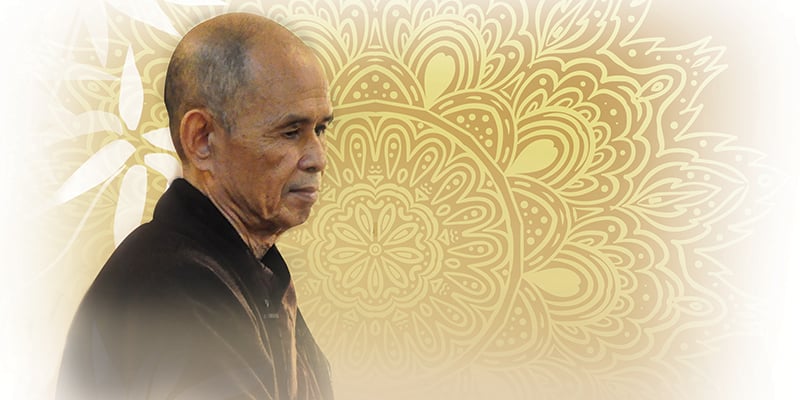What If Your Body Knows How To Heal, But The System Doesn’t Want You To Trust It?
Discover the hidden flaw in modern health care — and why it keeps you dependent.
In my recent interview with Dr. Patrick Gentempo, a longtime friend and respected chiropractor, we discussed the importance of knowing your own health philosophy. We explored topics such as self-trust, fear, and the role of curiosity in guiding you toward good decisions. Our conversation highlighted how easy it is to get swept up in a system that emphasizes quick fixes instead of true healing.
You might think a prescribed drug or an invasive procedure is the only answer because that is the message coming from some powerful voices. Yet, genuine health care is not just a set of steps or pills. It involves your choices, your beliefs and your willingness to understand what your body truly needs.
In his early days in chiropractic care, Gentempo frequently encountered patients who assumed a doctor always knew best. Those same individuals often had no real sense of their own ability to heal. In many cases, they simply replaced their inner wisdom with a blind trust in practitioners wearing white coats.
Each of us can take a more active role in our own health care. Part of that means understanding that most so-called “health care” is actually designed to handle crises and emergencies, rather than promote day-to-day well-being.
There is certainly a place for emergency interventions. If you experience a broken bone or life-threatening infection, going to a hospital is clearly the right move. But making wise decisions in everyday life often prevents these problems, or at least lessens their severity.
Throughout my professional journey, I have found the best outcomes happen when you trust your own judgment enough to consider alternative approaches.
Embracing Self-Trust And Personal Choice
Fear disrupts your ability to trust yourself. I have often seen people become so caught up in what they are told by experts that they lose sight of their own experiences and gut feelings. Without a personal philosophy, you naturally adopt someone else’s. It means your choices come not from a place of conviction but from pressure or habit.
When you decide to live by your own philosophy, you begin to ask questions. You might wonder: Does a proposed treatment align with how you view health, or does it only address a symptom? Have you looked for credible data and then checked how it resonates with your experiences?
Throughout my professional journey, I have found the best outcomes happen when you trust your own judgment enough to consider alternative approaches.
This shift might involve saying “no” to a recommendation or stepping away from a risky drug. It often feels unusual, especially if you are used to following directions without challenging them. Yet, in the long run, this approach could save you from unneeded therapies and help you find better solutions.
This reminds me of a key study in the New England Journal of Medicine showing that certain knee surgeries were no better than sham procedures.1 It underscores how assumptions about standard care don’t always hold up. You deserve to know such information to avoid getting swept into fear-based decisions. The moment you break free from that cycle of dread, you become much better equipped to evaluate the merits of any treatment. You move from being told what to do, to deciding what to do. That is the essence of real self-trust.
Questioning The ‘Health Care’ Label
So much money and energy goes into a system better described as “sick care,” that despite massive health care spending, many people remain unwell or become sicker as they age.
See the countless advertisements for drugs, along with stories from family and friends who juggle multiple prescriptions. That seems perfectly normal in our current age, but it does not reflect what true health looks like. In a genuine health care system, the priority would be to help you stay healthy in the first place, focusing on prevention and healthy lifestyle habits.
This does not make medication-based care automatically “bad.” If you encounter an acute crisis, pharmaceutical or surgical interventions are often lifesaving. The issue arises when prescriptions and procedures are used for mild or chronic conditions without considering simpler, safer solutions. This over-reliance on medicine leads to a cycle where people keep adding more drugs to handle side effects, and no one ever addresses the root cause.
Through smart, natural methods, whether it is taking steps to optimize your vitamin D levels or learning how to manage stress before it spirals, you have options beyond the standard sick-care path. Remain curious and look for ways to maintain vitality. Do not wait for permission to try something as basic as healthy eating, proper sleep or a thoughtful supplement routine.
Crafting A Health Philosophy That Fits You
Forming a personal health philosophy means taking the time to decide what you believe about the nature of your body and how it heals. Some of you likely feel quite certain that the human body, given proper support, is incredibly resilient. You believe your energy and overall function improves with simple steps like removing toxins, eating real foods and staying active.
The moment you break free from that cycle of dread, you become much better equipped to evaluate the merits of any treatment. You move from being told what to do, to deciding what to do. That is the essence of real self-trust.
Others still cling to the assumption that a doctor’s prescription or a scalpel is always required to correct any health issue. Consider how your current beliefs were formed. Did you develop them through your own experience and valid research, or have you absorbed them from the environment around you? If you learn to audit your beliefs, you can keep the good ones and discard those that do not serve you anymore.
When you have a clear sense of what health means to you — when you know how you think your body should be cared for — other people’s claims become easier to evaluate. You may say, “That lines up with my philosophy,” or “This goes against how I understand health,” and proceed from there.
Deciding on your own philosophy does not mean you go it alone and never accept outside help. Rather, you become the ultimate judge. You gather insights from various sources, verify the evidence, then see if it resonates with your view of reality. If it does, you might adopt it. If not, you discard it without feeling guilty. A personal philosophy is not a set of unchanging rules; it shifts as new knowledge emerges.
Changing your perspective does not make you weak or indecisive. It means you are growing and staying open to the idea that new information should replace outdated ideas. Science itself evolves, and so do you. The important thing is to stay active in the process, so you are not letting others make choices for you while you remain on the sidelines.
Carrying The Lessons Forward
The pursuit of health is not just about strict rules or scientific papers. It is about learning how to align what you know logically with what you feel intuitively. Studies and data hold great value, yet, you are the only one living in your body, experiencing your daily routine and coping with your unique challenges.
Your mindset, emotions and choices build your energetic field. And that, in turn, influences your physical reality. You, too, can improve your health by shifting daily habits — often starting with small, seemingly simple changes. You begin by choosing to think differently about what health really means.
Focus on prevention, respect your body’s natural intelligence and do not let fear drive you. Instead, examine studies, seek expert opinions and, if you come to a different conclusion than the mainstream, realize that might be the best choice you ever make.
Become a partner in your own care — one who weighs information carefully and doesn’t forget the power you hold over your daily habits. Through this collaboration between your knowledge and your intuition, you tap into a higher level of healing and growth. Once you tune in to your body’s capabilities, you unlock not just a healthier version of yourself but also a more joyful and meaningful life overall.
Sources and References
1 N Engl J Med 2002; 347:81-88
This article was brought to you by Dr. Mercola, a New York Times bestselling author. For more helpful articles, please visit Mercola.com.
Find holistic Women’s Health & Spirituality in the Spirit of Change online Alternative Health Directory.
RELATED ARTICLES:
Five Healing Strategies To Reverse Chronic Conditions In Our Kids
Seven Practical Tips To Boost Your Self-Healing Power











